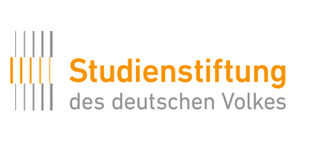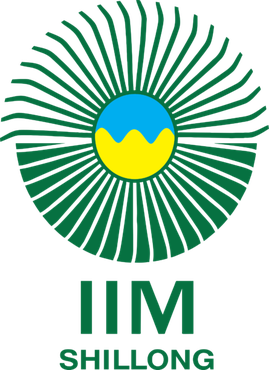Application and selection
The selection of participants is performed in two steps:
First, shortlisted students will be chosen based on the documents provided (see below). In the second phase, the final decisions are taken by the host companies.
The first selection is performed by judging the following documents, which are required for the application:
Students' international profiles, motivation and technical skills will be the critical information in the above list of documents.
After the first selection is performed, the students are given a list of host companies from which they may pick one or two — one being already chosen by the judging board. Then the applicants must write a dedicated motivation letter for each of the host companies, which will be sent directly to the human resource department of the company. These companies perform the final selection.
An internship is a period of work experience offered by an organization for a limited period of time. Once confined to medical graduates, internship is used practice for a wide range of placements in businesses, non-profit organizations and government agencies. They are typically undertaken by students and graduates looking to gain relevant skills and experience in a particular field. Employers benefit from these placements because they often recruit employees from their best interns, who have known capabilities, thus saving time and money in the long run. Internships are usually arranged by third-party organizations that recruit interns on behalf of industry groups. Rules vary from country to country about when interns should be regarded as employees. The system can be open to exploitation by unscrupulous employers.

The Japan Exchange and Teaching Programme, or JET Programme, is a teaching program sponsored by the Japanese government that brings university graduates to Japan as Assistant Language Teachers (ALTs), Sports Education Advisors (SEAs) or as Coordinators for International Relations (CIRs) in local governments and boards of education.
Reutlingen University is a university of applied sciences, involved in education and research. It is located in Reutlingen in the southern German state of Baden-Württemberg. Enrollment stands at about 5,500 students, a quarter of whom are international and exchange students. Reutlingen University has a long tradition as a second home for international students; over a quarter of the students currently registered come from countries outside Germany. The university offers undergraduate and graduate programs in the main fields of International Business, Engineering, Information, Medical and Natural Science and Design. In contrast to common university structures, the orientation of the faculties is less the result of the sciences located there. It rather results from their industry driven specialization. The five schools of Reutlingen University are the School of Applied Chemistry, ESB Business School, the School of Information Technology, the School of Engineering and the School of Texiles & Design. Top Five placements in various rankings and its reputation amongst industry and commerce has made it one of Germany's most prestigious universities of applied sciences.
An au pair is a helper from a foreign country working for, and living as part of, a host family. Typically, au pairs take on a share of the family's responsibility for child care as well as some housework, and receive a monetary allowance or stipend for personal use. Au pair arrangements are often subject to government restrictions which specify an age range usually from mid-late teens to mid to late twenties, and may explicitly limit the arrangement to females. The au pair program is considered a form of cultural exchange that gives the family and the au pairs a chance to experience and learn new cultures.

Hankuk University of Foreign Studies is a private research university based in Seoul, in South Korea. HUFS consistently ranks as one of the best universities in South Korea. The university currently teaches 45 foreign languages. In addition, it contains studies in humanities, law, political science, social sciences, business, medical science, natural sciences, and engineering.

A student exchange program is a program in which students from a secondary school or higher education study abroad at one of their institution's partner institutions. A student exchange program may involve international travel, but does not necessarily require the student to study outside their home country.
University admission or college admission is the process through which students enter tertiary education at universities and colleges. Systems vary widely from country to country, and sometimes from institution to institution.
The Congress-Bundestag Youth Exchange is a youth student exchange program founded in 1983. The program, which is jointly sponsored by the United States Congress and the German Bundestag, funds exchange programs for German and American students through grants to private exchange organizations in both countries. The funding in the United States is administered by the Bureau of Educational and Cultural Affairs of the United States Department of State.

The German Academic Scholarship Foundation is Germany's largest and most prestigious scholarship foundation. According to its statutes, it supports "the university education of young people who, on account of their exceptional academic or artistic talents and their personalities, can be expected to make an outstanding contribution to society as a whole". The Studienstiftung is non-political, non-denominational and ideologically independent. Its headquarters are located in Bonn; it also has an office in Berlin. The current president is University of Bonn director Michael Hoch, and its patron (Schirmherr) is the President of Germany, Frank-Walter Steinmeier.

Medical education in the United States includes educational activities involved in the education and training of physicians in the country, with the overall process going from entry-level training efforts through to the continuing education of qualified specialists in the context of American colleges and universities.

Indian Institute of Management Shillong is a public, fully autonomous management institute in the city of Shillong, Meghalaya. It was the seventh Indian Institute of Management to be established in India.
The Kentucky Governor's Scholars Program (GSP) is a program to attempt to keep "the brightest" rising high school seniors inside the state of Kentucky. The program is a five-week program over the summer for students between their junior and senior years of high school. It is held at three different colleges across the commonwealth of Kentucky every year. The program is highly competitive with about a 50% acceptance rate. In order to get accepted, prospective scholars must have high academic achievement, including standardized test scores, and be active in the community. The application prompts students to list their academic, extracurricular, and volunteer achievements. In addition, students must write an essay to be accepted into the program. The program itself consists of various classes and other school activities. The 1,000 rising seniors that are selected yearly are eligible to receive scholarships to any in-state public university upon completing the program. This incentive is an effort to keep the most intelligent of the state, in Kentucky.
The Japan Prizewinners Programme (JPP) was a one-year postgraduate course for outstanding Dutch graduates with a university master's degree, who may aspire to become leaders in Dutch society. Each year up to 20 participants were recruited among the best university graduates in various fields of study.

Tilburg University, founded in 1927, is a medium-sized, multidisciplinary institution with a focus on the humanities and social sciences. Committed to sustainable prosperity, the university emphasizes education, research, and collaboration guided by values such as Caring, Connected, Curious, and Courageous. With 19,931 students, including 4,231 international students, across 73 programs, and an alumni network of over 87,000 individuals, Tilburg University is dedicated to addressing contemporary challenges for societal advancement.
Student migration is the movement of students who study outside their country of birth or citizenship for a period of 12 months or more. During the period of globalization, the internationalisation of higher education increased dramatically and it has become a market driven activity. With the rapid rise of international education more and more students are seeking higher education in foreign countries and many international students now consider overseas study a stepping-stone to permanent residency within a country. The contributions that foreign students make to host nation economies, both culturally and financially has encouraged major players to implement further initiatives to facilitate the arrival and integration of overseas students, including substantial amendments to immigration and visa policies and procedures. Institutions are competing hard to attract international students at a time when immigration policies in leading destinations like the US and the UK are not enabling transition to work visas.

CEMS – The Global Alliance in Management Education or CEMS is a cooperation of leading business schools and universities with multinational companies and NGOs. The CEMS Global Alliance includes 34 academic institutions on every continent, nearly 70 corporate partners and eight social partners (NGOs) from around the globe. CEMS administers the delivery of the CEMS MIM degree in its member schools, supports the CEMS Alumni Association (CAA) and facilitates general cooperation among its members.
The Critical Language Scholarship (CLS) Program is a United States Department of State cultural and educational exchange program which offers approximately 500 undergraduate or graduate level students from the United States the opportunity to participate in an intensive language study abroad. This nationally competitive program funds students who study one of the 15 critical need foreign languages, and is part of the National Security Language Initiative. The 15 critical languages include Arabic, Azerbaijani, Bengali, Chinese, Hindi, Indonesian, Japanese, Korean, Persian, Portuguese, Punjabi, Russian, Swahili, Turkish and Urdu. With an acceptance rate of less than 10%, the Critical Language Scholarship is one of the most competitive scholarships in the U.S. and the most prestigious language program for U.S. citizens.
Established in 1987, the EU-Japan Centre for Industrial Cooperation is a unique venture between the European Commission and the Japanese Government (METI).
ESTIEM is a non-profit, non-governmental and non-political student organisation that connects European students that combine technological understanding with management skills. The goal of this organisation is to establish and foster relations between students across Europe and support them in their professional and personal development. As of August 2023, the ESTIEM network counts over 8,000 members that are registered in 76 universities from 26 countries.

The Heinz Nixdorf Program is a scholarship program to promote Asia-Pacific related work experience for young aspiring managers holding German citizenship. The program is funded by the Heinz Nixdorf Stiftung.








